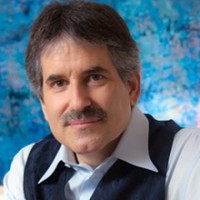There’s always something electric in the atmosphere when someone dares to assert spiritual convictions in a decidedly secular context.
It’s almost like, “I can’t believe s/he had the courage to say that!” That’s why I was so interested when I heard that Jeff Bridges, aka “The Dude,” was going to be on The Daily Show with Jon Stewart last week speaking about his new book, The Dude and the Zen Master, which features a series of conversations between Bridges and his “buddy,” Zen master Bernie Glassman.
What actually transpired in the five-minute interview was, I suppose in retrospect, both predictable and disappointing. You can watch it below:
Bridges is obviously a man with deep spiritual convictions. Convictions so deep that he’s been compelled to write a book with his spiritual teacher and appear in dozens of interviews in print, radio, and television, including NPR, The New York Times, Charlie Rose, Late Night with Jimmy Fallon, and The View.
“I only wish we could find a way in this day and age not to be so easily embarrassed to admit the felt presence of our uniquely human desire for meaning and purpose.”
But as you can see if you watch the accompanying interview, Bridges seems an extremely reluctant prophet. Indeed, Stewart, with apparent sincerity, invited Bridges three times to speak directly about what Zen actually is. He seemed to want to know and understand what this mysterious Eastern metaphysical path to Enlightenment was all about. But each and every time, Bridges would shift uncomfortably in his chair and resort to making a joke out of it all. It was almost as if he refused to be serious about his own passion.
That refusal was supposed to be the whole point of his Dude-like philosophy: stop taking things so seriously, man! But the effect of Bridges’s seeming reticence during the interview ironically nullified the powerful Zen message of both his compelling book and all true liberation teachings, which boldly and unapologetically declare: there is a higher truth, the discovery of which frees one at the deepest level.
“It’s past time that we stop being so easily ‘duped’ by the prevailing cultural narrative that tells us that the big question of meaning is just a relative and personal matter, and doesn’t necessarily have any ultimate or universal value.”
This kind of simple honesty seemed almost an anathema to Bridges. Indeed, he was enacting a cultural attitude that is common among postmodern people, one that media theorist Thomas de Zengotita calls “the fear of being duped”—of daring to publicly state a belief in anything higher or deeper or of ultimate meaning.
To quote de Zengotita:
“Believing in anything with great conviction, sets you up for making a fool of yourself.”
So I was disappointed.
That being said, the very fact that Bridges is “coming out” so publicly about the deeper truths that he apparently feels so passionately about in our overly secularized and often frustratingly shallow culture is in and of itself an admirable act of conscience, courage, and conviction.
I only wish we could find a way in this day and age not to be so easily embarrassed to admit the felt presence of our uniquely human desire for meaning and purpose. In fact, it is that existential need for meaning, maybe more than anything else, that makes us truly human. It’s past time that we stop being so easily “duped” by the prevailing cultural narrative that tells us, in so many different ways, that the big question of meaning is just a relative and personal matter, and doesn’t necessarily have any ultimate or universal value.
I believe that it does. And I’m not alone. The majority of history’s greatest philosophers, spiritual geniuses, and cultural visionaries would all agree. So maybe it’s time that we all stopped pretending that those moments when we experience a deep and heartfelt desire for existential clarity and fulfillment are not very important. Maybe it’s time for more of us, like Bridges, to come out of the closet.
This article was initially published on Andrew’s BigThink Blog, The Evolution of Enlightenment.
Like elephant spirituality on facebook.
Ed: Lynn Hasselberger










Read 1 comment and reply